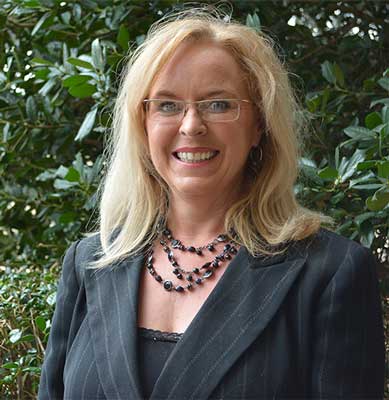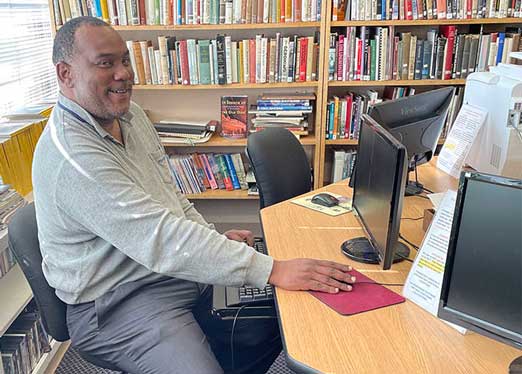By
Therese Perlowski - Program Manager, Higher Education Membership
Estimated reading time: 7 minutes
 “Eliminating the digital divide enables all citizens to participate fully in our society and economy.” -Sonja Wall, Senior Director of OneNet and OCAN Services.
“Eliminating the digital divide enables all citizens to participate fully in our society and economy.” -Sonja Wall, Senior Director of OneNet and OCAN Services.
Oklahoma’s state research and education network, OneNet, is committed to leveling the playing field for Oklahoma residents through their work with over 70 libraries in the state.
From the beginning, OneNet recognized what a critical piece of the digital inclusion ecosystem libraries are– they provide communities access to broadband connections, enabled devices, and digital skills training.
Sonja Wall, the Senior Director of OneNet and Oklahoma Community Anchor Network (OCAN) Services, shares, “Serving Oklahoma’s libraries has been an important part of OneNet’s mission since its inception. OneNet’s leadership is also passionate about digital inclusion in Oklahoma. We are thankful for the work that libraries are doing to provide critical services within their communities.” By providing high-speed internet access and technical support for the libraries on the OneNet network, OneNet enables libraries to implement innovative digital equity programs like the digital navigator program, the Excel high school project, and a telehealth pod pilot program.
Digital Navigator Program
Currently running in five rural libraries across Oklahoma, Oklahoma State University’s Digital Navigator Program is a pilot effort funded through AARP that hires local community members to help library patrons with their technology issues. These can range from how to set up a smartphone, to signing up for the Affordable Connectivity Program (ACP), to obtaining low-cost broadband service or devices, to demonstrating options for telehealth.
 Cliff Peters, Digital Navigator at Okemah Public Library
Cliff Peters, Digital Navigator at Okemah Public Library
The digital navigators primarily work from the library, but they also travel to community events like those sponsored through OSU’s Cooperative Extension to make presentations and let people know about their services. “My research has found that just making broadband available to communities is not enough … they need to adopt and productively use it to meaningfully impact their quality of life. The Digital Navigator Program is focused on helping people do just that,” shares Dr. Brian Whitacre, Oklahoma State University Professor of Agricultural Economics. “This is a crucial role that can really change how people use the internet to improve their day-to-day lives.”
The program has provided numerous examples of clear impact. One digital navigator from the Davis Public Library in Southern Oklahoma shares an example, “One man I helped told me he had no idea where to even start to get their own internet access, and, after my session with him, he said he felt completely confident that he would be able to go sign up for PCs for People and the EBB (Emergency Broadband Benefit Program) [now the ACP] unassisted.”
The navigator at the Okemah Library shared that he assisted one customer in being approved for EBB and eventually in setting up a Facebook/Meta account to sell his homemade crafts and fresh vegetables on the marketplace. With a wide variety of applications, digital navigators help library patrons access and effectively use technology in their lives and the community. The programs are still running in all five libraries, but the funding will run out soon. The Oklahoma Department of Libraries plans to submit an American Recovery Plan Act (ARPA) request to expand this program and is hopeful it will continue to grow.
Excel High School
Oklahoma libraries are also working to expand the educational opportunities OneNet’s connection enables. To support adults in earning their high school diploma, five public libraries – Southern Oklahoma Library System, Ada Public Library, Elk City Carnegie Library, Lawton Public Library, and Miami Public Library – are offering an opportunity for patrons to pursue an online, fully-accredited high school diploma. Gale Presents: Excel Adult High School includes ongoing support from instructors, success coaches, plus unlimited, online tutoring program Train the Brain and course translation and read-aloud tools for English language learners.
Administered by the Oklahoma Department of Libraries, Excel Online High School is supported by the Institute of Museum and Library Services under the provisions of the American Rescue Plan Act (ARPA), and by their partner, the Oklahoma Office of Workforce Development through the U.S. Department of Labor under the Workforce Innovation and Opportunity Act. Oklahoma Department of Libraries Director Melody Kellogg shares, “We wanted to use some of our ARPA funds to expand the educational offerings of our public libraries, and we knew that the pandemic had disrupted so many schedules across the board. Attending a crowded classroom in-person may not be an option for some people. Excel High School allows for social distancing while providing top-notch educational opportunities.”
In addition to administering the programs, libraries are providing Oklahoma residents 25-years-old and older the opportunity to apply for 30 scholarships. On December 1st, all five libraries launched their project with an Excel website to promote and take student scholarship applications.
Currently, there are six Oklahomans who are taking the prerequisite coursework to determine their eligibility for a scholarship and nine scholarship students who are currently enrolled in the coursework. “A high school education is essential for today’s job seekers, and we knew we wanted to work with the Oklahoma Office of Workforce Development on this project,” Kellogg said. “They came on board with major funding and we’re so grateful.”
Telehealth Initiative
One of the newest initiatives leverages a partnership from The Oklahoma Department of Libraries, Oklahoma State University Center for Rural Health, and Oklahoma Complete Health (a managed care organization) to offer access to telehealth services in 8-10 Oklahoma libraries. The program is tailored after a similar program in Delaware that installed soundproof telehealth pods in libraries to offer community members a space for safe, private virtual medical care.
Targeting libraries in rural areas with limited connectivity options or low adoption rates, every library that participates in the project will have some flexibility in how to best support their community with additional access. For example, some libraries may look to the pod/kiosk solution as they’ve done in Delaware, but others may determine the best support is checking out tablets that are connected to high-speed internet where a person could then “borrow” the device much like a book or movie, take it home to use in the privacy of their home, and then return it.
Dr. Mark Woodring, Assistant Dean of Rural Health at the Center for Health Sciences at Oklahoma State University (OSU) explains, “As we work to improve health outcomes in our state’s rural and underserved populations, this effort makes significant gains in health literacy and overcoming the ‘digital divide’ as there are many patient populations that do not have access to solid broadband in their homes, neighborhoods, or communities.” The group received an initial grant to fund the first phase that will include 2-4 libraries and the OSU Center for Rural Health plans to fund expansion to 4-5 additional sites, for a total of 6-9 libraries.
OneNet’s high-speed connection, long-standing relationship with Oklahoma libraries, and commitment to digital inclusion initiatives make projects like the digital navigator program, the Excel high school project, and a telehealth pod pilot possible for its communities. “Digital inclusion and digital equity levels the playing field for all Oklahomans by removing barriers for rural citizens, low-income residents, and disadvantaged individuals. Eliminating the digital divide enables all citizens to participate fully in our society and economy,” explains Wall.
About OneNet:
On the web: https://onenet.net/
OneNet Connected Subscriber Institutions:
- 57 college & university campuses
- 51 career technology centers
- 278 K-12 school districts
- 72 libraries
- 52 hospitals & clinics
- 32 research & other agencies
- 11 tribal agency sites
- 803 government agency sites
About the Author(s)
Therese Perlowski is Program Manager for Higher Education Membership at Internet2, where she manages strategic relationships to enhance value and collaboration across the higher education community. She coordinates programs and initiatives that strengthen member participation, advance Internet2’s mission and deepen community impact.